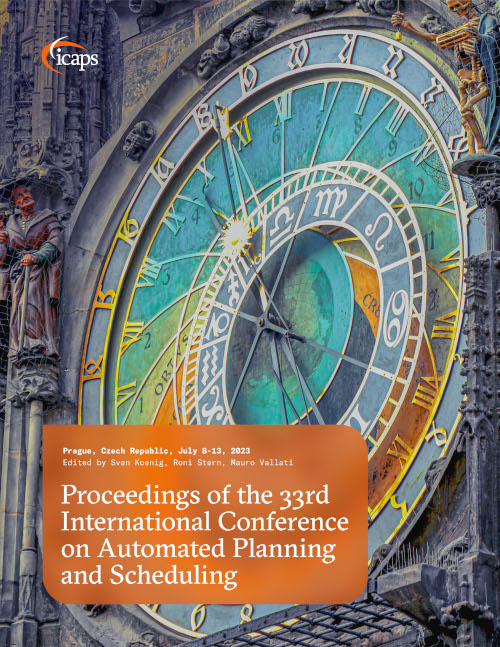Efficient Evaluation of Large Abstractions for Decoupled Search: Merge-and-Shrink and Symbolic Pattern Databases
DOI:
https://doi.org/10.1609/icaps.v33i1.27188Keywords:
Classical planning techniques and analysis, Heuristic search, Theoretical foundations of planning and schedulingAbstract
Abstraction heuristics are a state-of-the-art technique to solve classical planning problems optimally. A common approach is to precompute many small abstractions and combine them admissibly using cost partitioning. Recent work has shown that this approach does not work out well when using such heuristics for decoupled state space search, where search nodes represent potentially large sets of states. This is due to the fact that admissibly combining the estimates of several heuristics without sacrificing accuracy is NP-hard for decoupled states. In this work we propose to use a single large abstraction instead. We focus on merge-and-shrink and symbolic pattern database heuristics, which are designed to produce such abstractions. For these heuristics, we prove that the evaluation of decoupled states is NP-hard in general, but we also identify conditions under which it is polynomial. We introduce algorithms for both the general and the polynomial case. Our experimental evaluation shows that single large abstraction heuristics lead to strong performance when the heuristic evaluation is polynomial.Downloads
Published
2023-07-01
How to Cite
Gnad, D., Sievers, S., & Torralba, Álvaro. (2023). Efficient Evaluation of Large Abstractions for Decoupled Search: Merge-and-Shrink and Symbolic Pattern Databases. Proceedings of the International Conference on Automated Planning and Scheduling, 33(1), 138-147. https://doi.org/10.1609/icaps.v33i1.27188

